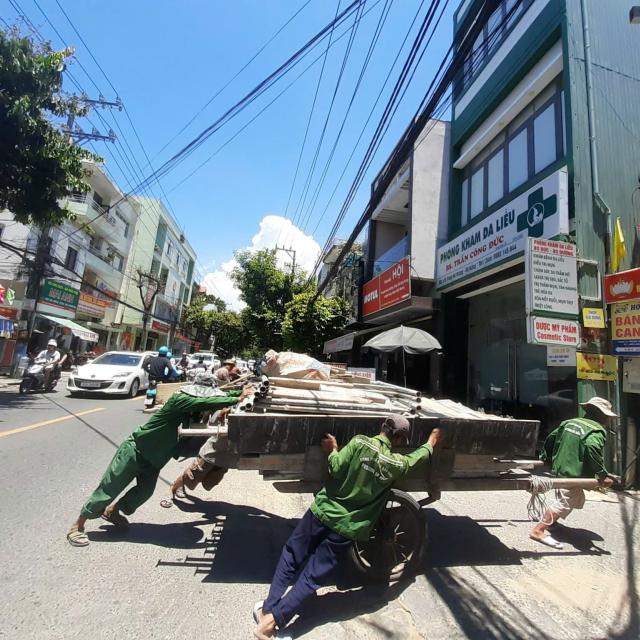Events
Upcoming events
A UNESCAP side event showcasing Asian city case studies on community-led responses to climate change and urban inequality.
Past events
On 24 January 2026, more than 100 participants joined the Fourth Roundtable Discussion on the Impacts of Climate Change on Urban Outdoor Workers in Ho Chi Minh City, in person and online. Researchers, policymakers, civil society organisations, journalists, and—most importantly—outdoor workers themselves came together to reflect on how climate change is reshaping health, livelihoods, and everyday survival in Viet Nam’s cities.
This event was a space where evidence met lived experience, where policy language was questioned, and where the people most affected by climate change were no longer spoken about—but spoke for themselves.
Climate change as a public health crisis
Our research team shared findings from two survey rounds (2024–2025) conducted in Hanoi, Danang, Ho Chi Minh City, and Can Tho. The results reveal a rapidly deepening crisis. Average monthly income among outdoor workers fell by 15.7% in just one year, while self-rated health declined significantly. The proportion of workers reporting poor health rose from 14.8% to 21.8%, and for the first time, income and health became strongly linked—evidence of a growing poverty–ill-health trap.
Mental health burdens were particularly striking. Nearly four in ten street vendors—most of them middle-aged women—showed signs of mental health distress, making them the most vulnerable occupational group. Ho Chi Minh City and Danang emerged as “hotspots” of impact, while Can Tho stood out as a case of stronger adaptation, pointing to the importance of local infrastructure and support systems.
“We work ten to fourteen hours a day—how are we ‘informal’?”
The most powerful moments of the day did not come from the slides or statistics, but from the workers themselves. At first, many were hesitant to speak. One female worker quietly waved her hand and said, “I can’t read or write—what would I know to say?” But when the discussion turned to the term “informal worker,” the room changed.
A female waste collector spoke up firmly:
“This makes no sense. It is wrong even grammatically. We work ten or more hours every day—real work. So how can we be ‘informal’?”
Her words cut through the room. They were not a theoretical critique, but a lived one.
A ride-hailing driver followed with a story of how rising fuel, food, rent, and electricity costs had slowly eroded his life:
“Eleven years ago, I worked four hours a day and had enough to live. Now, to reach the same point, I must work fourteen hours. So tell me—does this ‘freedom’ people talk about really exist?”
Vulnerability is not personal—it is structural
The data presented at the roundtable showed that the strongest predictors of declining health were not individual behaviours, but structural barriers: lack of institutional support, unsafe working environments, and the inability to stop working even in extreme heat or heavy rain. Sixty-three percent of participants said the biggest obstacle to adapting to climate change was the absence of support from authorities and organisations.
Climate impacts, coping barriers, and mental health were shown to reinforce one another, forming a downward spiral that leaves workers with fewer options, weaker health, and greater insecurity.
From evidence to action
The roundtable also introduced the Outdoor Workers’ Health Protection Toolkit, co-produced with workers themselves, and invited participants to assess its feasibility in real-world settings. Beyond tools and data, the event opened a space for collective problem-solving and policy dialogue. The long-term vision is to establish a joint working group dedicated to strengthening health protection for outdoor workers in the context of climate change.
As one participant reflected, “We cannot talk about climate adaptation if the people standing under the sun and rain every day are not part of the conversation.”
This roundtable marked a shift—from invisibility to recognition, from abstract vulnerability to human reality, and from research to responsibility.
On 24–25 October 2025, our Wellcome-funded project was featured as one of the key research contributions at the Annual Scientific Conference of the Ministry of Health and the Vietnam Medical Association 'Medical Research and Applied Practice, held in Hà Nội. With nearly 300 participants – including leading professors, clinicians, policy advisers, and researchers from national hospitals, universities, and research institutes – this is the most significant gathering of the health sector in Vietnam’s annual calendar.
Our research on the health impacts of climate change on precarious outdoor workers in major Vietnamese cities was selected as one of only six plenary presentations in the opening session. It was featured alongside presentations from the Ministry of Health, the Vietnam Medical Association and leading national hospitals, addressing strategic themes such as improving hospital quality in the era of digital transformation, the national strategy on antimicrobial resistance, and the future of AI in medical care.
Dr Nguyễn Thu Giang presented the findings on behalf of the VMA–LIGHT research team - our local partners. The talk highlighted:
- Intensifying climate risks facing street vendors, motorbike delivery workers, construction labourers and other outdoor workers.
- How heat stress, pollution, and extreme weather intersect with insecure livelihoods.
- Gaps in social protection, occupational health systems, and urban planning.
- The urgent need for climate–health adaptation strategies that recognise outdoor workers as a distinct group.
The presentation drew strong attention from delegates, many of whom emphasised that the health impacts of climate change – particularly on vulnerable working populations – are now impossible to ignore.
Alongside the plenary session, our team hosted a project showcase table, sharing our policy review findings and early fieldwork insights. Nearly 100 delegates visited to request materials, and enquire about the project results and its next phase. This gives a strong signal that this issue resonates widely across the medical and public health community, and that there is real momentum and opportunity for deeper collaboration and policy dialogue as the project moves forward.
Importantly, in the conference closing remarks, the Chair highlighted climate change and health as an issue requiring particular strategic priority, noting the serious and far-reaching consequences if it is not addressed with adequate attention and investment. This was precisely the aim of our contribution: to begin shifting awareness among policy-makers, managers, researchers and practitioners regarding both the urgency and the uneven health impacts of climate change — especially on those groups who are most vulnerable.
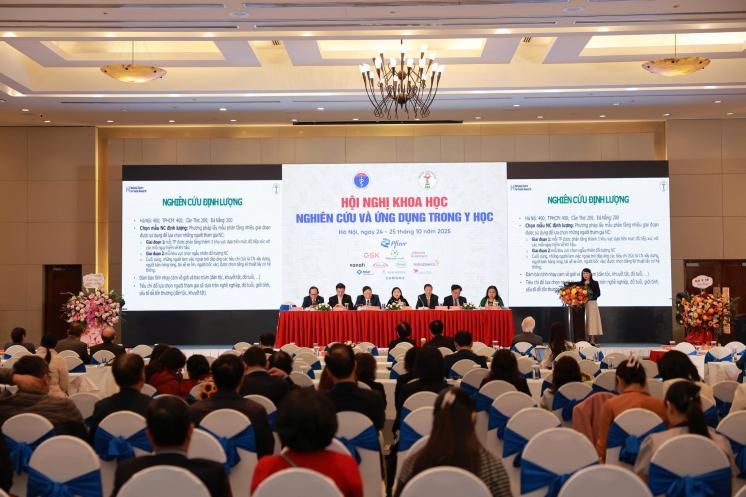
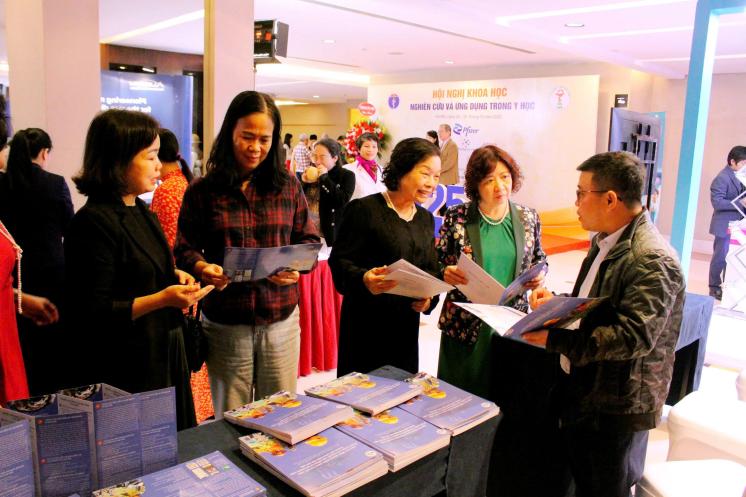
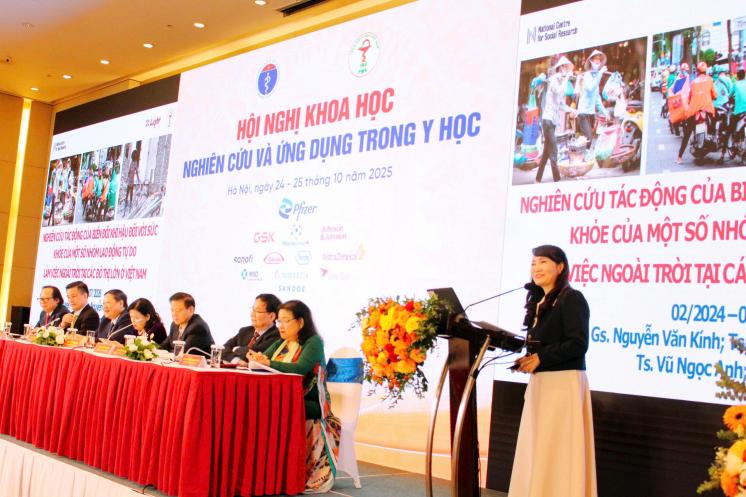
The Hong Kong Red Cross International Conference on Disaster Risk Reduction 2025 brought together around 150 participants from across the Asia-Pacific and beyond — researchers, practitioners, and humanitarian actors committed to advancing inclusive and equitable climate action.
Dr Anh Vu, Principal Investigator of the Wellcome-funded project on climate change and health, delivered a talk titled “From Intersectional Risks to Intersectional Solutions: Climate Change and Health among Precarious Outdoor Workers.”
In her presentation, Dr Vu shared insights from research in urban Vietnam that explores how climate change and health intersect in the daily lives of informal outdoor workers — including street vendors, porters, motorbike taxi riders, and construction workers.
She emphasised the importance of applying an intersectional lens, recognising that vulnerability is not only about exposure to environmental hazards but also shaped by overlapping factors such as gender, class, migration, and informality. These intersecting inequalities mean that those most exposed to climate risks are often the least protected by current systems. "Vulnerability isn’t just about exposure to hazards, but about how gender, class, migration, and informality overlap to shape who gets protected — and who gets left out" - Dr Vu said.
The project calls for a shift from siloed policies to joined-up, intersectional approaches that begin where risks are lived — on the streets, in markets, and at construction sites — while recognising the creativity, care, and resilience of those adapting under the toughest conditions.
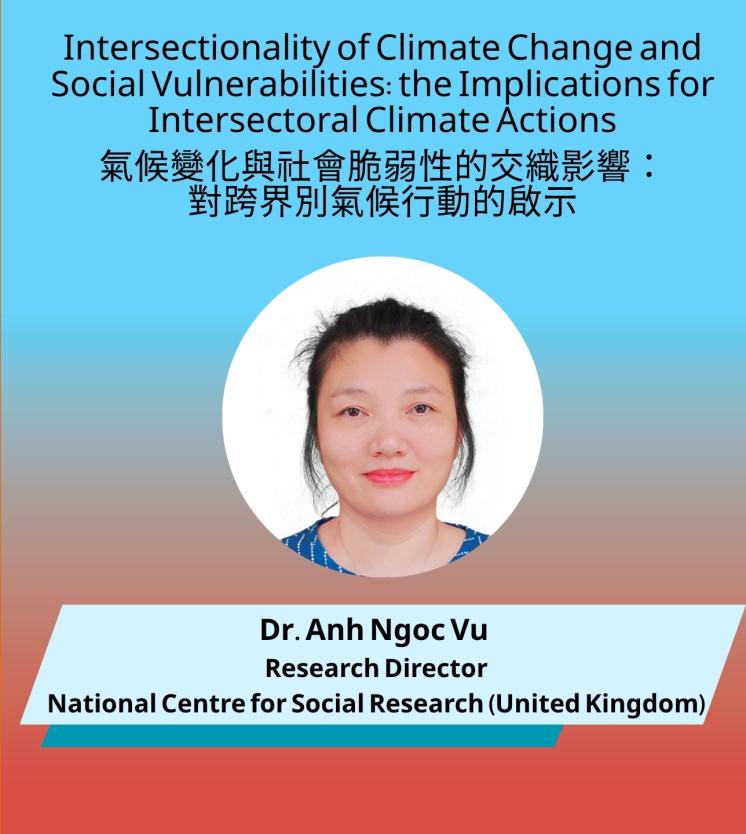
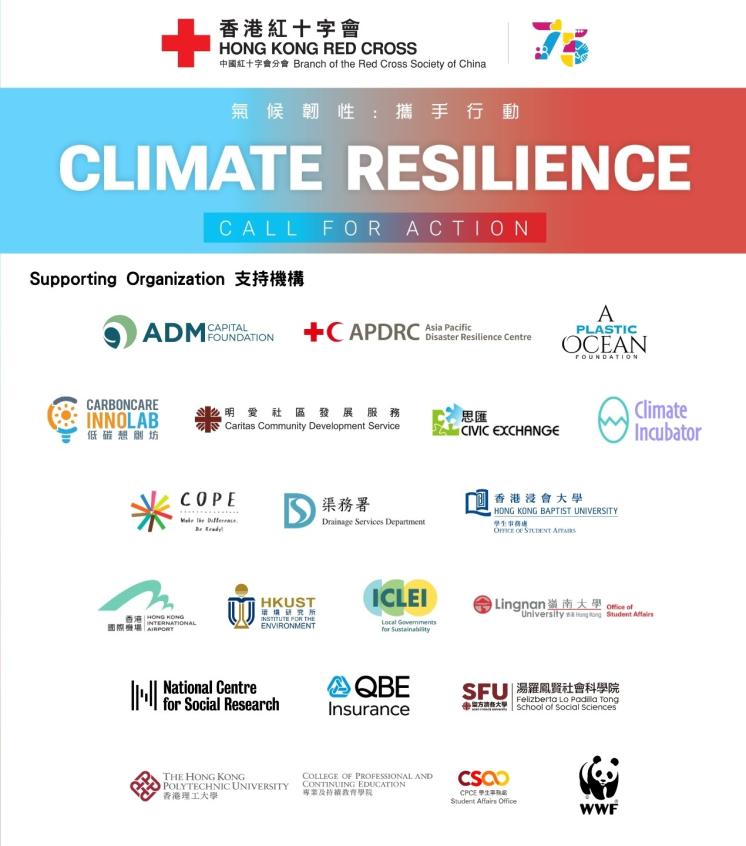
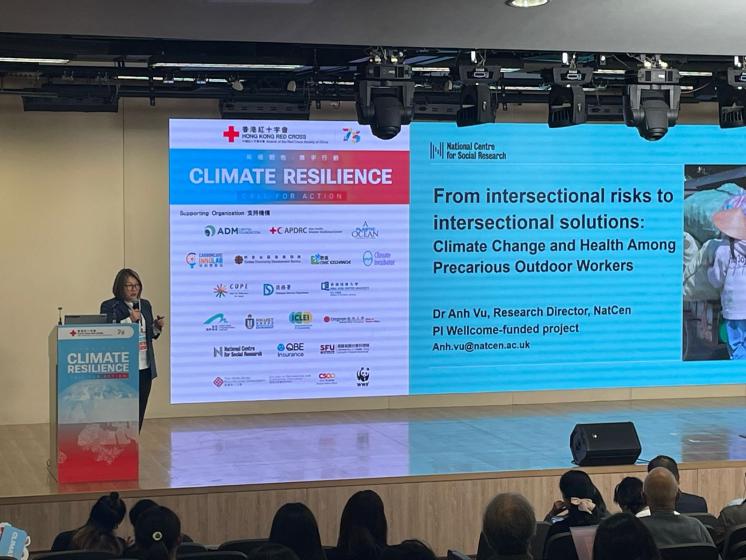
The Social Life Research Institute, hosted the finale of the contest “Pioneering Initiatives in Climate Change Adaptation 2025” in Ho Chi Minh City, as part of the Wellcome Trust–funded research prọject on the health impacts of climate change on outdoor workers, in collaboration with the National Centre for Social Research (United Kingdom). The event was chaired by Dr Anh Ngoc Vu, the PI of the Wellcome project, and Dr Loc Duc Nguyen, the project Co-I.
The Map4Drop initiative took home First Prize with its innovative “community ecosystem” for clean water access. The platform enables outdoor workers to find nearby free drinking water stations, supported by contributions from communities, businesses, and local authorities. Equipped with AI forecasting, it can predict water demand based on weather data and offer personalised guidance. Importantly, the system works on both smartphones and basic mobile phones via SMS, ensuring inclusivity.
- Second Prize: Medical Supply ATM – a solar-powered, corrosion-resistant machine providing essential first-aid items, guided by an AI “virtual assistant.”
- Third Prize: ShadePoint – a modular 5-in-1 public rest hub offering shade, mist cooling, charging points, a smart first-aid kit, and a water/electrolyte dispenser.
- Merit Prizes: “Sức khỏe treo” (“Hanging Health”), enabling communities to pre-fund healthcare services for vulnerable workers, and Protective Equipment Support for Gig Drivers, a welfare scheme offering protective gear and support policies for app-based drivers.
A hallmark of the contest was the direct involvement of informal outdoor workers, not only as participants but also as co-creators and critics of ideas. Their lived experiences challenged assumptions and sharpened solutions.
As Dr Nguyen Duc Loc, Director of the Social Life Institute, affirmed: “Workers are not just beneficiaries, they are the true experts of climate realities.”
For further information, click here.
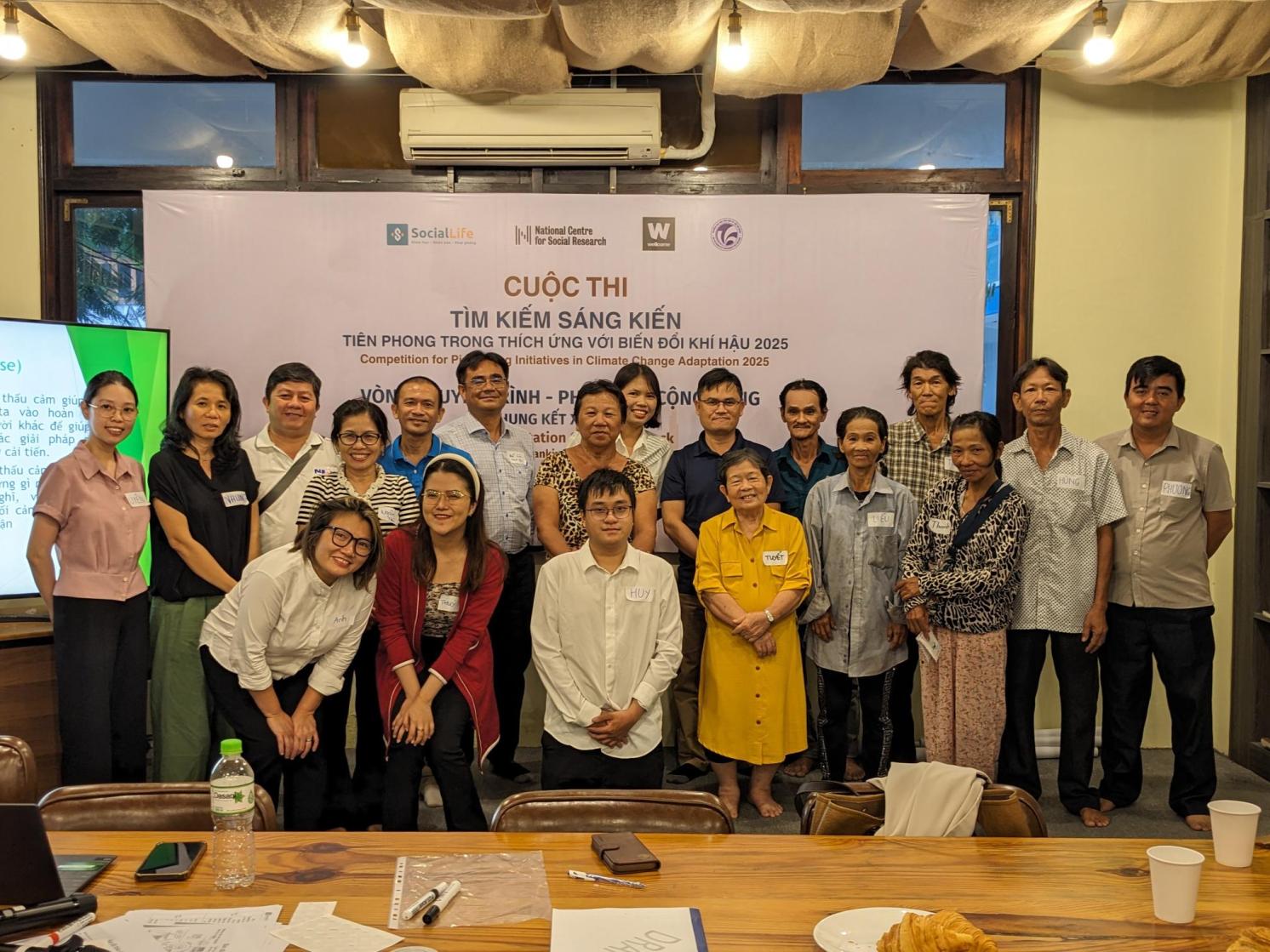
The Social Life Research Institute hosted a consultation workshop on the Outdoor workers’ Climate-Safe Health Handbook at its office in Ho Chi Minh City. The discussion gathered frontline workers, social organisations, policymakers, and media representatives. The event was chaired by Dr Anh Ngoc Vu, NatCen’s Research Director, also the Principal Investigator of the Wellcome project, and Dr Loc Duc Nguyen, the project Co-I.
The handbook is part of the Wellcome Trust–funded research programme “The health impacts of climate change on precarious outdoor workers in urban megacities in Vietnam”, conducted in collaboration with the National Centre for Social Research (United Kingdom).
Using Focus Group Discussions (FGD) and Participatory Rapid Appraisal (PRA) methods, participants provided in-depth feedback on the handbook’s content, language, and accessibility. Workers from scrap collecting, refuse collection, and street vending backgrounds shared candid perspectives on how useful the guide would be in daily life. One scrap collector noted: “Does this help me find work, or earn money to buy food?”—a reflection of workers’ immediate livelihood concerns.
Outdoor worker participants expressed eagerness to use and share the handbook, even adapting it to low-literacy contexts by involving family members.
Alongside the outdoor worker group, the group of policymakers, social organisations, and media specialists discussed the detailed content, strategies for dissemination—emphasising effective communication channels, training, and integration into existing community programmes. Notably, these participants are committed to supporting the handbook’s rollout, marking the start of a broader community support network.
The insights from this session will directly inform revisions to the handbook’s technical content, presentation style, and dissemination strategy. The process reaffirmed that worker-centred participation is key to designing practical, sustainable tools that protect health and livelihoods in the face of climate change.
For further information, click here.
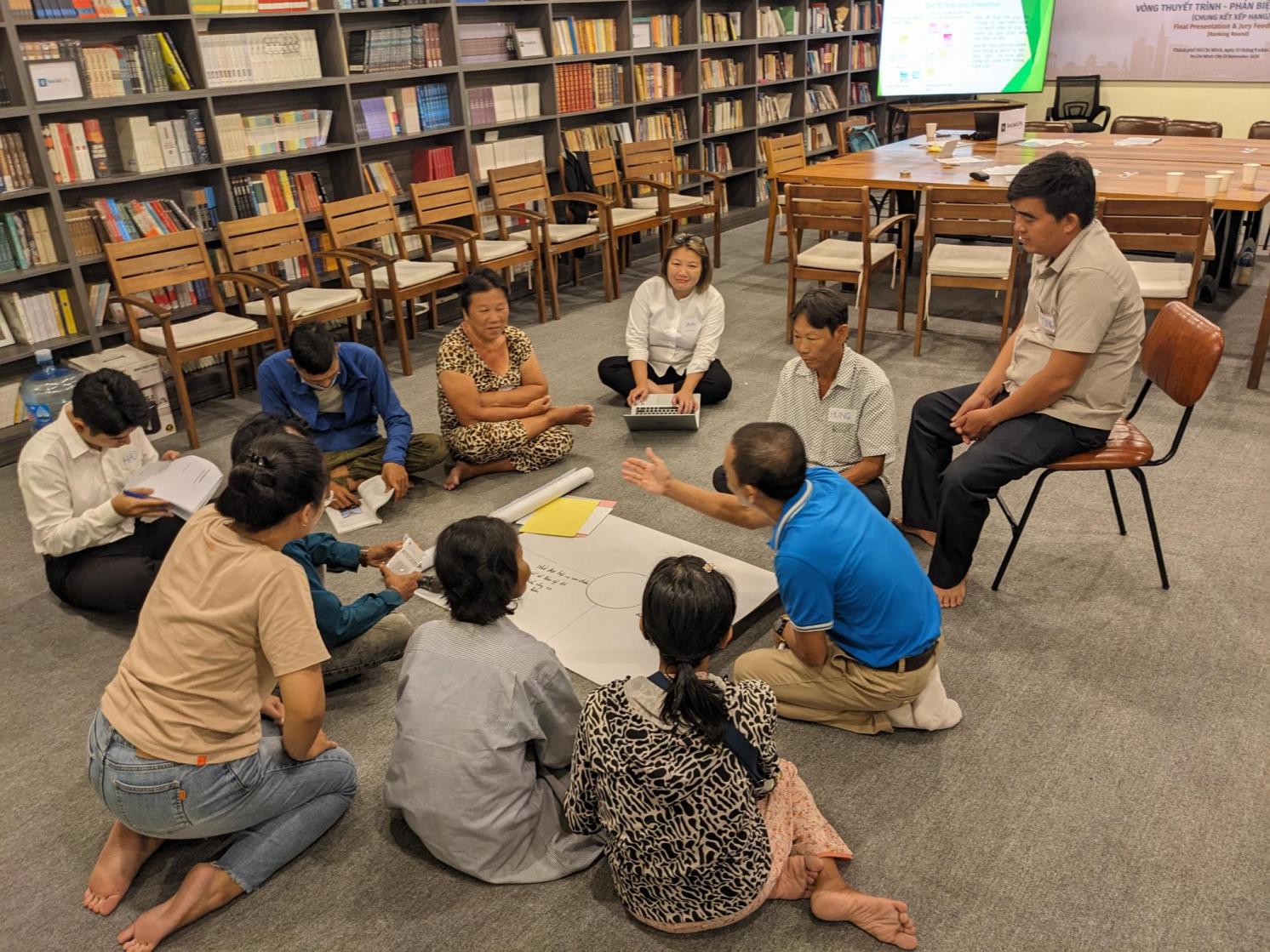
Dr Anh Vu (PI, NatCen) and Dr Loc Nguyen (Co-I, SocialLife Institute) co-led a training workshop, “From Theoretical Paradigms to Research Design: Practical Applications in Climate & Health”, at Duy Tan University in Da Nang — one of the project’s four research sites.
The workshop equipped lecturers and students with theoretical grounding and real-world insights on how different research paradigms can be applied to pressing challenges, focusing on the health impacts of climate change on outdoor workers in Vietnam’s major cities. Beyond presenting evidence, it fostered critical thinking, dialogue, and collaboration — giving participants tools to design research that is both academically rigorous and practically relevant.
This forms part of our Wellcome-funded project’s wider mission: to strengthen research capacity in Vietnam on challenge-led topics at the intersection of climate change and health, and to support the next generation of researchers in producing work that is theoretically robust while generating practical, community-focused solutions.
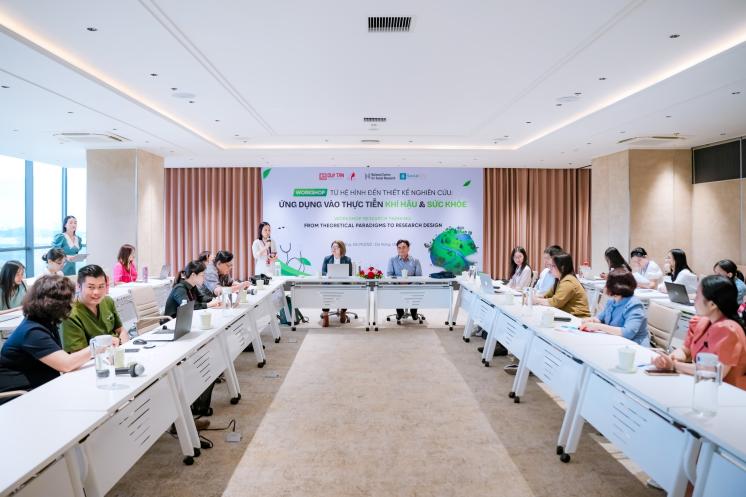
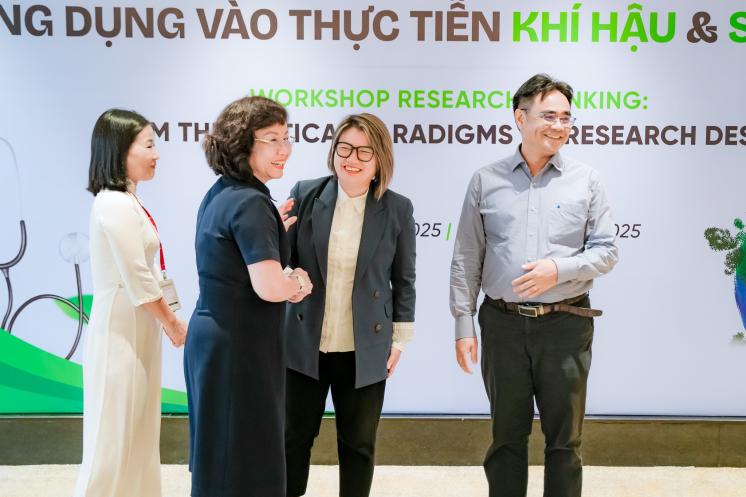
At the Global Climate and Health Summit, Dr Anh Vu, PI of the Wellcome-funded project, presented new insights on the health impacts of extreme heat on precarious outdoor workers in Vietnam’s megacities.
Dr Vu stressed the limitations of siloed policy approaches—where climate, health, and labour are treated separately—and argued for integrated solutions that reflect the lived realities of informal workers, including street vendors, construction labourers, and motorbike taxi drivers. These groups are among the most exposed to climate risks yet remain largely absent from adaptation planning.
Drawing on research with over 400 workers across four cities, the presentation highlighted:
- Layered vulnerabilities shaped by age, gender, migration status, education, and chronic health conditions.
- Everyday adaptation strategies, from peer learning and traditional remedies to community-built “vernacular infrastructures” such as shared shade.
- Systemic barriers to healthcare, social protection, and policy inclusion.
Dr Vu emphasised that outdoor workers are not passive victims but active agents of adaptation, whose knowledge and practices must inform climate–health policies. The talk called for dismantling silos and advancing joined-up, justice-oriented policies that protect health, livelihoods, and dignity.
Click here to listen to the talk.
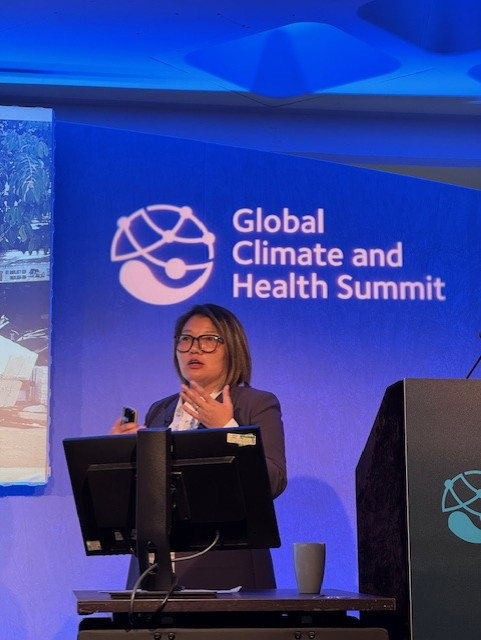
For further information click here.
This two-session panel brought together scholars to explore the complex and intersecting health impacts of extreme weather events on vulnerable urban populations in the Global South. Focusing on informal workers, informal settlement residents, migrants, and other marginalised groups, the panel examined how climate-related risks are shaped by broader structural inequalities and local socio-political contexts. Presentations spanned multiple geographies — including Vietnam, India, Pakistan, Kenya, and Tanzania — and employed a range of methods, from quantitative modelling to ethnography and participatory research. The discussions highlighted the urgent need for grounded, cross-sectoral research and deeper theoretical engagement with climate-health dynamics in rapidly urbanising and climate-exposed settings.
This event brought together key regional and international partners to focus on the most climate-vulnerable yet under-represented groups in research and policy—precarious outdoor workers and rural communities across Southeast Asia.
https://natcen.ac.uk/events/climate-change-health-and-well-being-urbanising-southeast-asia
One day conference showcasing preliminary findings, highlighting the project's significance, and facilitating in-depth discussions on the challenges and opportunities associated with addressing climate change-related health risks in the global South
At the inaugural GHHIN Southeast Asia Heat Health Forum, Dr Anh Vu, the Project PI, delivered a presentation on the project preliminary findings. These workers—street vendors, construction labourers, porters, and motorbike taxi riders—are vital to urban life yet face disproportionate exposure to extreme heat, insecure jobs, and limited protections.
Survey data from 400 workers in four cities show that:
- Older age and low education compound vulnerability, with street vendors the most at risk.
- Work is gendered: vending is female-dominated, while construction and porting are male-dominated.
- Heat exposure is severe, with many working during peak midday hours.
- Coping strategies like hydration or shade are widespread but insufficient; over 90% of workers lack formal training on adaptation.
- Migrant status and cost barriers restrict access to healthcare and social support.
Key message: Outdoor workers remain largely invisible in policy frameworks despite being highly exposed to climate change. Effective adaptation requires their formal recognition in labour and health policies, gender-sensitive interventions, and worker-led solutions that provide both immediate relief and long-term resilience.
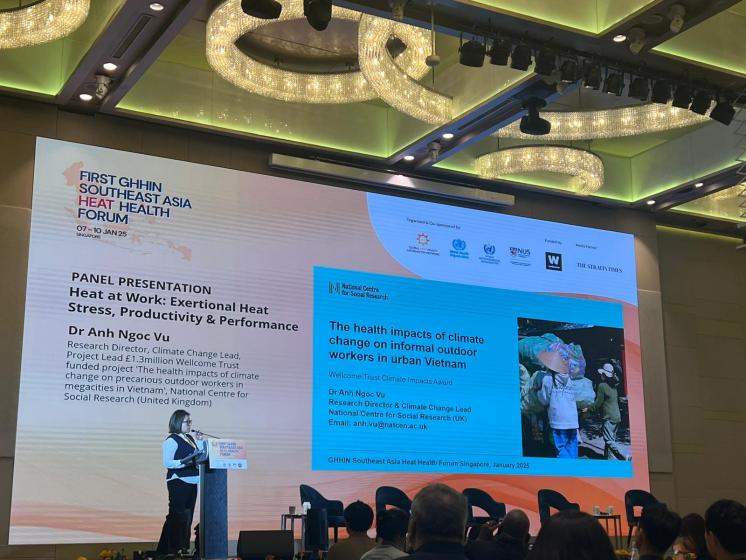
For further information about the Conference, click here.
The SocialLife institute hosted this roundtable to gather expert and worker feedback on the Intelligent Climate Alert Network (ICAN)—a non-profit mobile app designed to mitigate climate change’s impact on the health and livelihoods of outdoor workers.
Building on the success of the first workshop in October 2024, the event engaged 89 participants, including representatives from the Ministry of Health, Ho Chi Minh City Centre for Disaster Prevention and First Aid Training, and Ho Chi Minh City Centre for Disease Control. Media agencies also played a crucial role in amplifying key discussions and outcomes.
This roundtable served as a strategic platform to introduce the ICAN app, a key outcome of our project. Multidisciplinary experts and policymakers provided valuable insights to refine its functionality and effectiveness before broader implementation.
This roundtable showcased key findings from the qualitative research component of our program, with a major highlight being the release of comparative results from two systematic evidence reviews of literatures in Vietnamese language and English langauge. These reviews examined the impacts of climate change on the health of outdoor workers in Vietnam and urban areas across Asia, revealing notable differences due to varying publication standards between Vietnamese and international scientific journals.
Based on robust qualitative data, the roundtable also presented targeted policy recommendations to improve the health, livelihoods, and working conditions of outdoor workers. The event brought together 84 participants with expertise in urban planning, geography, environmental studies, labour migration, and public health, alongside representatives from labour unions, social organisations, outdoor worker communities, and media agencies.
A key focus of the workshop was the presentation of in-depth interviews with outdoor workers, offering perspectives that quantitative research had not fully captured. Experts provided detailed feedback on the project’s reports, strengthening the foundation for further research and policy development. The real-life stories of outdoor workers resonated deeply, sparking meaningful discussions and drawing significant attention from the community.
This roundtable presented preliminary findings from our first-round survey of 400 informal outdoor workers on the impacts of climate change on their health in four Vietnamese megacities: Hanoi, Ho Chi Minh City, Da Nang, and Can Tho. The event aimed to gather feedback from experts and stakeholders to refine the research outcomes.
Attended by 89 participants from diverse sectors, the workshop brought together policymakers from the Ho Chi Minh City People’s Council, government officials from the Labour Federation, Department of Health, and Department of Labour, War Invalids, and Social Affairs, as well as experts in social policy, environmental studies, and public health—alongside outdoor workers themselves.
The discussions were highly productive, with valuable insights from experts, officials, and policymakers. The engagement fostered open dialogue on research findings, policy implications, and potential solutions, ensuring a collaborative approach to addressing climate-related health risks for outdoor workers.
Thank you to our partners at Vietnamese Medical Association for hosting a constructive workshop to discuss the first-ever review of Vietnamese policies concerning the health of outdoor workers affected by climate change.
https://x.com/NatCen_Int/status/1841399031378911542
